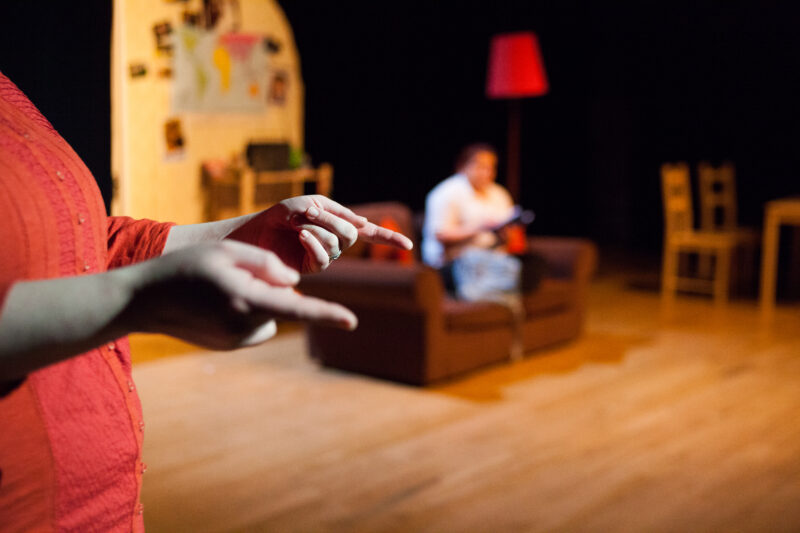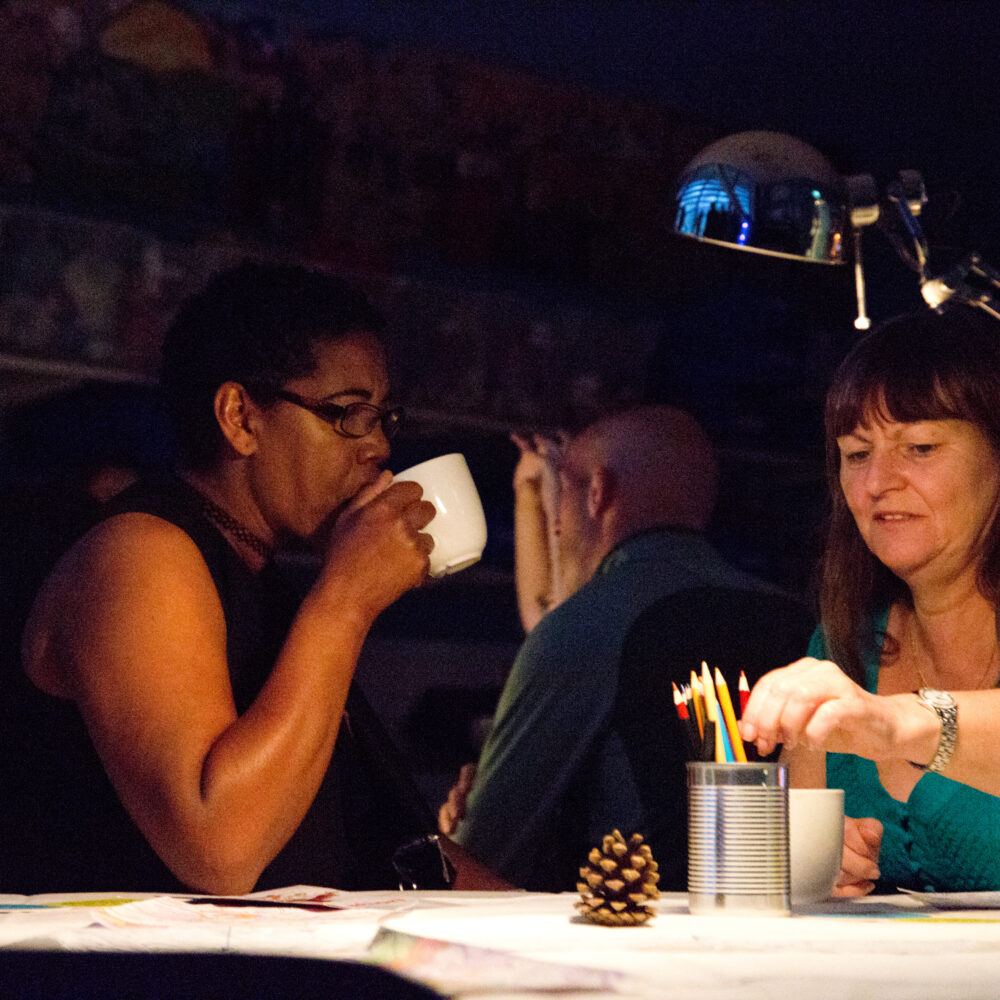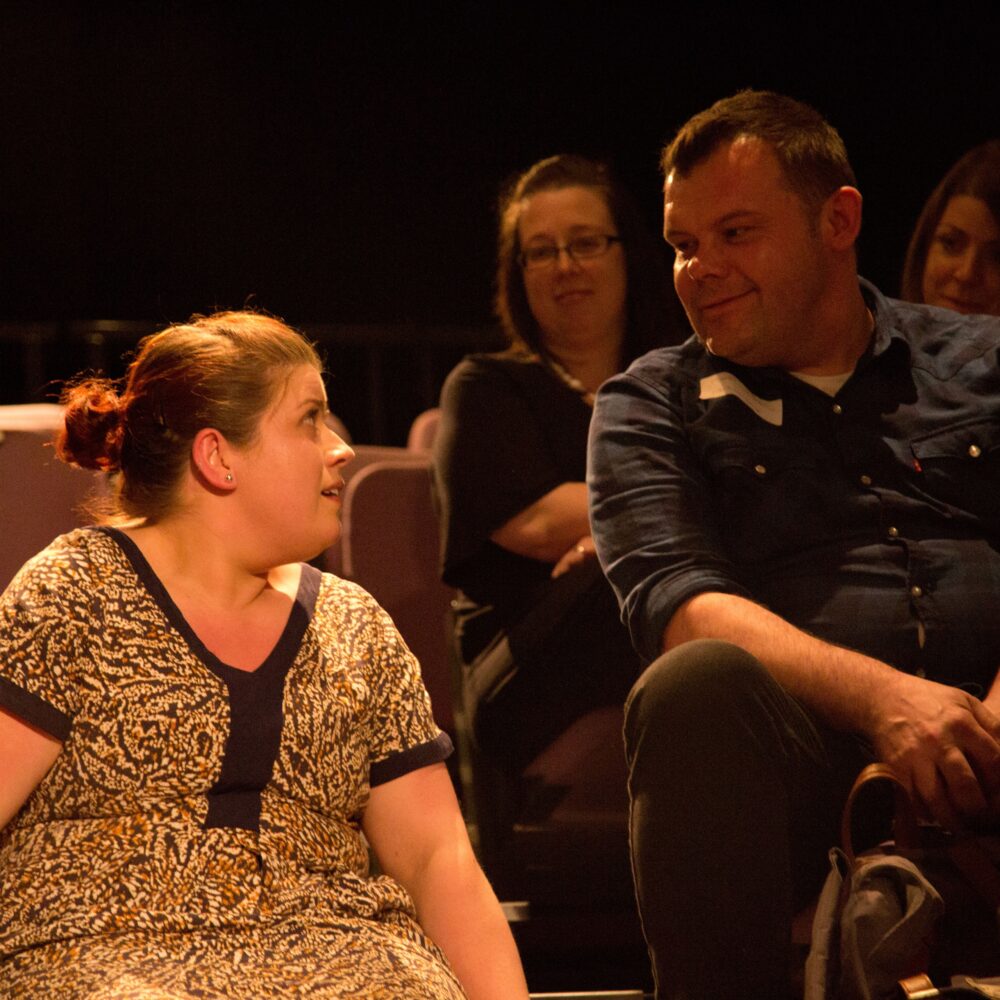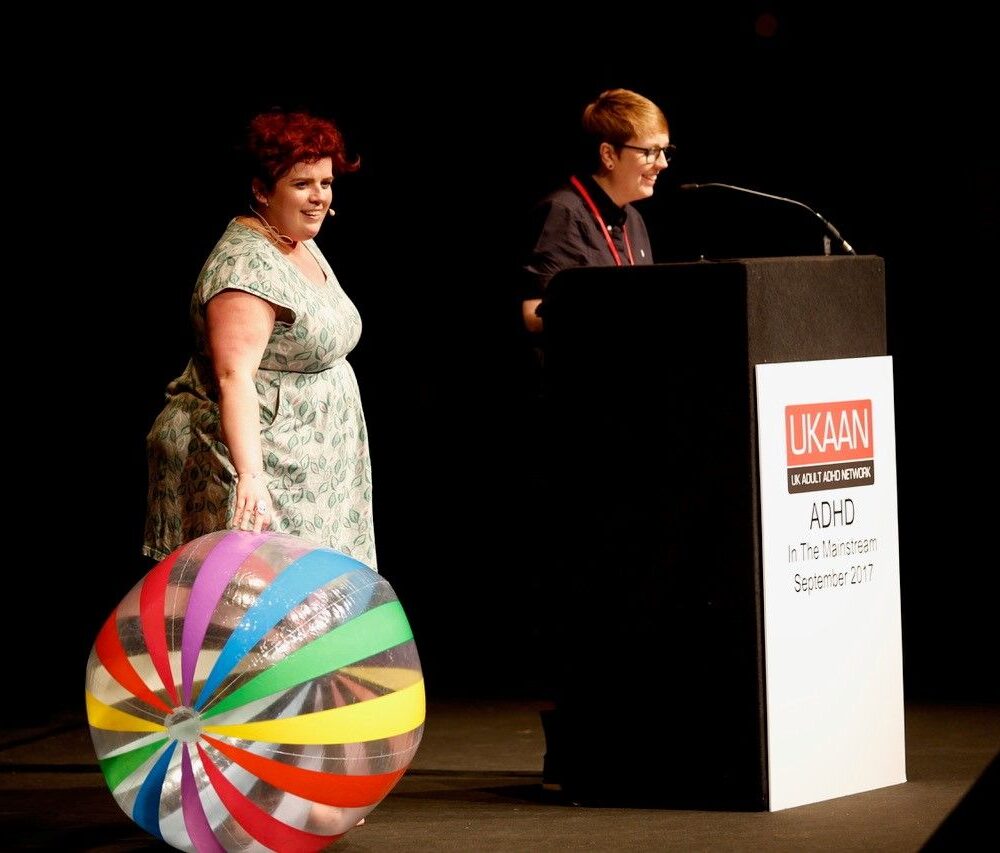Accessibility
We’re big into accessibility – and we love making sure our work can be enjoyed by as many people as possible, from providing British Sign Language Interpreters to subsidised tickets.

We’re big into accessibility – and we love making sure our work can be enjoyed by as many people as possible, from providing British Sign Language Interpreters to subsidised tickets.
We believe that disability is caused by society’s set up, rather than by a person’s impairment or difference – and that’s why we’re committed to working hard to remove any barriers for the people we work with, whether that’s audiences, artists or participants. Accessibility drives our artistic practice. It is not a question at the end of a project, it informs our artistic choices and often drives new ideas, such as Squirrel Club, an online creative workshop for children with ADHD which was born out the frustrations of parents whose children were struggling with home learning during lockdown for.
We want people to feel as comfortable as possible during their time with us, and we are aware that comfort looks different to everyone. For example, for some audience members being given information on what to expect in advance of an event can help them to feel less anxious. Whereas another audience member will need access to audio description.


We work hard to promote positive mental health and wellbeing, working with venues and artists to improve experiences for audiences, participants and creatives. We’ve contributed to national conversations about audience and artist wellbeing and strive to create environments and experiences in which neurodivergent audiences, participants, artists and collaborators feel comfortable. We’ve created projects that address mental health and neurodiversity, including our play Declaration, Box Tickers Podcast, SPACE Mobile Wellbeing Room and Dial a phone based project for elders.
*Neurodiversity: where neurological differences are as recognised and respected as any other human variation. These can include ADHD, Dyspraxia, Dyslexia, Dyscalculia, Autistic Spectrum, Tourette Syndrome, and others.
When we say we want to make our work as accessible as possible, we mean it – and that’s why we acknowledge economic inequality, ensuring that finance isn’t a barrier to joining in with our projects.
Whether providing free tickets to our performances, covering transport costs for community groups or actors attending auditions, we do all we can to make sure people are able to access our work.


Swipe right to see the ways we manage access.

Our drive to create better accessibility is an active learning process. We seek out opportunities to learn from others with lived experience. We regularly attend workshops, discussions and events around disability in the arts, and in wider society. Our Co-Creative Director Sarah has BSL Level 3 and experience working as a PA to people who use Augmentative and alternative communication (AAC) devices. Our Co-Creative Director Rachel worked in audience development at Contact theatre for 3 years, gaining vital knowledge around audience access and grass roots engagement.

So that we can create a fitting environment for everyone we ask participants and workers to fill out an access form / rider. This helps inform our working practice and ensures we regularly reassess what access means to different people and communities. At the end of every project, performance and workshop we ask people for feedback, providing an open opportunity for people to highlight areas for improvement.

We have been awarded for our commitment to improving access and equality in the arts, receiving a Heart of Salford ‘Equalities Award’, as well as an ADHD Foundation Partnership Award for raising awareness of ADHD and neurodiversity. We’ve contributed to national conversations about audience and artist wellbeing, delivered workshops on diversity and access for leading arts organisations, chaired LGBTQIA+ youth debates as part of Queer Contact and developed an equalities workshop programme which has been delivered to thousands of pupils in schools across Greater Manchester, as well as in prisons and business settings.

We regularly partner with experts, organisations and people with lived experience of disability to ensure that their voices are present in the planning and delivery of creative projects. Examples of this collaborative practice are;
We are Art with Heart, and we want to bring together as many people as possible to unlock their creativity and connection to each other. As a registered charity (1205611), donations make it possible to deliver accessible, representative and inclusive projects, to engage more people, employ more freelancers and plan further into the future. Together, we are building Art with Heart, we would love you to join us! CLICK HERE to donate through our Ko-fi campaign.